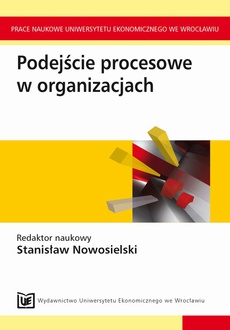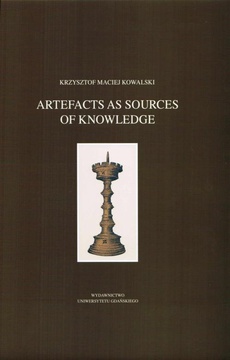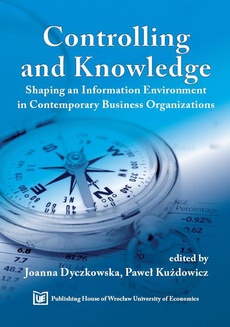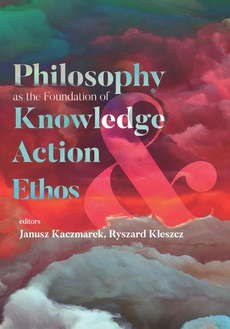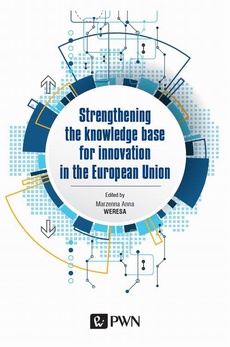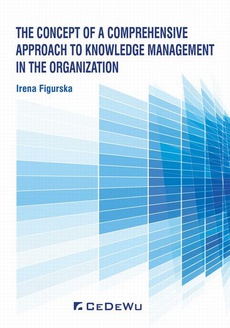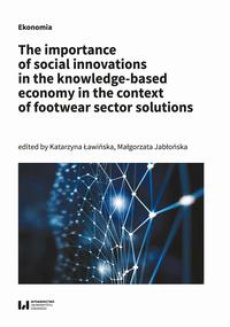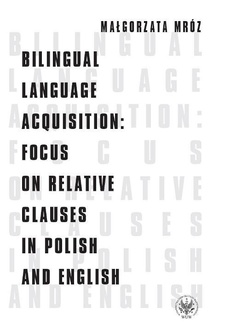POLECAMY
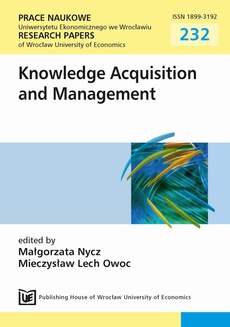
Knowledge Acquisition and Management
Redakcja:
Format:
ibuk
At present, we observe very fast progress in the development of information and
communication technologies affecting all the sectors of our life. New economy
(called also knowledge-based economy) is becoming more and more important. It is
often combined with information and communication technologies, technical progress,
and innovations.
In information society and knowledge-based economy, knowledge is treated as
a one of the most valuable assets. One can observe a tendency to know more and
more. New information and communication technologies offer better, faster, and
more powerful tools and techniques; on the other hand, these new possibilities create
new needs.
The Department of Artificial Intelligence Systems since the beginning of 1990s
has managed seventeen conferences recently focused on different knowledge acquisition
and management topics. In 2010 the event took place in Książ Castle (Lower
Silesia, close to Wałbrzych) in the very original scenery, where our discussions
were located in historical locations, reminding participants about the mixture of
cultures and scientific disciplines representing different sorts and approaches to
knowledge exchange. The researchers participating personally or virtually in this
conferences represented academic centres from Europe and overseas (Belarus,
France, Ireland, and Australia). Apart from traditional sessions, the conference was
enriched by video presentations with the participation of our guests from Europe as
well as Poland. The following persons presented papers in this way: Krzysztof Michalik
(Poland), who spoke about “Diagnosis of industry sets using expert systems”,
Eunika Mercier-Laurent from France, who presented some ideas about
“Knowledge EcoInnovation” (later published also a larger book about it), and
Markus Helfert representing Ireland, who delivered a talk about “Current and future
trends in knowledge management”.
This year from over 20 submitted papers, 15 were accepted and included as research
papers in this volume. The papers appear in the alphabetical order of authors’
names. The proceedings consist of papers divided into three areas:
- methods of artificial intelligence: papers written by Roman Karpovich, Małgorzata
Nycz, Maciej Pondel, Maria Radziuk, Tatyana Solodukha and Boris Zhelezko;
- applications of intelligent systems: papers authored by Jerzy Korczak and Marcin
Iżykowski, Antoni Ligęza, Maria Mach, Jerzy Surma, Paweł Weichbroth;
- knowledge management: papers prepared by Iwona Chomiak-Orsa, Eunika Mercier-
Laurent, Mieczysław L. Owoc, Radosław Wójtowicz, Radosław Zatoka and
Cezary Hołub.
| Rok wydania | 2011 |
|---|---|
| Liczba stron | 196 |
| Kategoria | Publikacje darmowe |
| Wydawca | Wydawnictwo Uniwersytetu Ekonomicznego we Wrocławiu |
| ISBN-13 | 978-83-7695-200-0 |
| Język publikacji | angielski |
| Informacja o sprzedawcy | ePWN sp. z o.o. |
Ciekawe propozycje
Spis treści
| Preface | 7 |
| Iwona Chomiak-Orsa: Selected instruments of controlling used in the area of knowledge management | 9 |
| Roman V. Karpovich: Creating the portfolio of investment projects using fuzzy multiple-criteria decision-making | 19 |
| Jerzy Korczak, Marcin Iżykowski: Approach to clustering of intraday stock quotations | 29 |
| Antoni Ligęza: A note on a logical model of an inference process. From ARD and RBS to BPMN | 41 |
| Maria Mach: Analysing economic environment with temporal intelligent systems: the R-R-I-M architecture and the concept of quasi-objects | 50 |
| Alsqour Moh’d, Matouk Kamal, Mieczysław L. Owoc: Integrating business intelligence and theory of constraints approach | 61 |
| Eunika Mercier-Laurent: Future trends in knowledge management. Knowledge EcoInnovation | 70 |
| Małgorzata Nycz: Business intelligence in Enterprise 2 | 79 |
| Mieczysław L. Owoc: Key factors of Knowledge Grid development | 90 |
| Maciej Pondel: Data mining with Microsoft SQL Server 2008 | 98 |
| Maria Radziuk: Multi-agent systems for electronic auctions | 108 |
| Tatiana V. Solodukha, Boris A. Zhelezko: Developing a multi-agent system for e-commerce | 117 |
| Jerzy Surma: Case-based strategic decision-making | 126 |
| Paweł Weichbroth: The visualisation of association rules in market basket analysis as a supporting method in customer relationship management systems | 136 |
| Radosław Wójtowicz: Office online suits as a tool for supporting electronic document management | 146 |
| Radosław Zatoka, Cezary Hołub: Knowledge management in programming teams using agile methodologies | 156 |
| Presentations Markus Helfert: Current und Future “Trends” in Knowledge Management – A management capability perspective | 167 |
| Eunika Mercier-Laurent: Knowledge EcoInnovation | 181 |
| Iwona Chomiak-Orsa: Wybrane instrumenty controllingu wykorzystywane w obszarze zarządzania wiedzą | 18 |
| Roman V. Karpovich: Tworzenie portfela projektów inwestycyjnych przy użyciu wielokryterialnych rozmytych metod podejmowania decyzji | 28 |
| Jerzy Korczak, Marcin Iżykowski: Próba klasteryzacji dziennych notowań giełdowych | 40 |
| Antoni Ligęza: Uwaga na temat logicznych modeli procesu wnioskowania. Od ARD i RBS do BPMN | 49 |
| Maria Mach: Analiza środowiska ekonomicznego przy pomocy inteligentnych systemów temporalnych – architektura R-R-I-M i koncepcja quasi-obiektów | 60 |
| Alsqour Moh’d, Matouk Kamal, Mieczysław L. Owoc: Integracja business intelligence z teorią ograniczeń | 69 |
| Eunika Mercier-Laurent: Przyszłe trendy w zarządzaniu wiedzą. Ekoinnowacje wiedzy | 78 |
| Małgorzata Nycz: Business intelligence w koncepcji Enterprise 2 | 89 |
| Mieczysław L. Owoc: Kluczowe czynniki rozwoju Knowledge Grid | 97 |
| Maciej Pondel: Drążenie danych w MS SQL Server 2008 | 107 |
| Maria Radziuk: Wieloagentowy system wspierający aukcje elektroniczne | 116 |
| Tatiana V. Solodukha, Boris A. Zhelezko: Budowa systemów wieloagentowych na potrzeby handlu elektronicznego | 125 |
| Jerzy Surma: Podejmowanie strategicznych decyzji w oparciu o analizę przypadków | 135 |
| Paweł Weichbroth: Wizualizacja reguł asocjacyjnych w analizie koszykowej jako metoda wspierająca systemy klasy CRM | 145 |
| Radosław Wójtowicz: Pakiety biurowe on-line jako narzędzia wspierające zarządzanie dokumentami elektronicznymi | 155 |
| Radosław Zatoka, Cezary Hołub: Zarządzanie wiedzą w zespołach programistycznych przy użyciu metodyk zwinnych | 164 |










